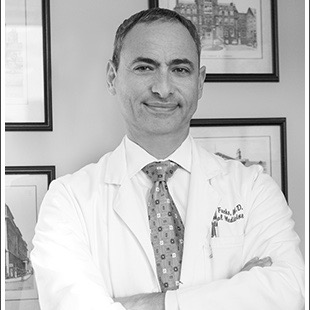16% of all spending in the US is on healthcare. About half of that is spent by federal, state, and local governments, and the other half is spent by the private sector. In 1970 about 7% of all spending was for healthcare. ” target=”_blank”>I wrote a series of posts analyzing the issue in 2009.) Because the vast majority of healthcare dollars are not paid by the patients receiving the care, there is little disincentive to provide care that has little or no benefit. In fact there is a great incentive to the doctor to provide as much such care as possible.
Besides high prices, this has resulted in a healthcare culture in which doctors offer and patients have come to expect tests and treatments which have been proven to be entirely without benefit. Last April in an attempt to educate both doctors and patients about interventions that are valueless, the American Board of Internal Medicine Foundation partnered with a number of physician specialty societies and formed an initiative called ” target=”_blank”>I wrote about it at the time. The program listed 45 different tests and treatments in nine different specialties that doctors shouldn't offer and that patients should question.
This week, Choosing Wisely has expanded this list. Many new physician specialty societies have come on board and the list of valueless tests and treatments has grown to 90. Among the new recommendations are:
- Don’t perform EEGs for headaches. The American Academy of Neurology finds that EEGs don't help in diagnosing the cause and do not improve outcomes.
- Don’t recommend feeding tubes in patients with advanced dementia; instead offer oral assisted feeding. The American Geriatrics Society reviewed the evidence that careful hand-feeding is as safe in patients with severe dementia and that tube feeding leads more frequently to agitation and worsening skin sores.
- Don’t use benzodiazepines or other sedative-hypnotics in older adults as first choice for insomnia, agitation or delirium. The American Geriatrics society reminds us of the risks of motor vehicle accidents, falls and hip fractures can more than double in older adults taking sleep medicines.
- Cough and cold medicines should not be prescribed or recommended for respiratory illnesses in children under four years of age. The American Academy of Pediatrics reminds us that these medicines have little benefit in young children and have potentially serious side effects.
Feel free to browse the list yourself. It is a fascinating gallery of bad medicine. I must confess that I’m guilty of some of the misdeeds myself. I have a handful of older patients who take Ambien (zolpidem). How delighted will they be when I refuse their pharmacy’s request for the next refill and tell them that there are safer alternatives?
Choosing Wisely is a worthwhile effort. It may prevent patient harm and improve care. But I suspect it will not make a dent in costs. As long as doctors have a financial incentive to provide inappropriate care, some of them will. As long as patients have little financial incentive to assure that their care is appropriate, many of them will not.
Learn more:
” target=”_blank”>Group Urges Health-Test Curbs (Wall Street Journal)
” target=”_blank”>Choosing Wisely
Did you enjoy this article?
You'll love our roundtable.
Editor's Picks



What Ever Happened to the LA Times?

Who Are the Jews On Joe Biden’s Cabinet?


No Labels: The Group Fighting for the Political Center
Latest Articles

Sephardic Torah from the Holy Land | The Seventh Day…
The Middle Matza Passover 2024

The Jewish James Bond Already Knows His Villain













 More news and opinions than at a Shabbat dinner, right in your inbox.
More news and opinions than at a Shabbat dinner, right in your inbox.